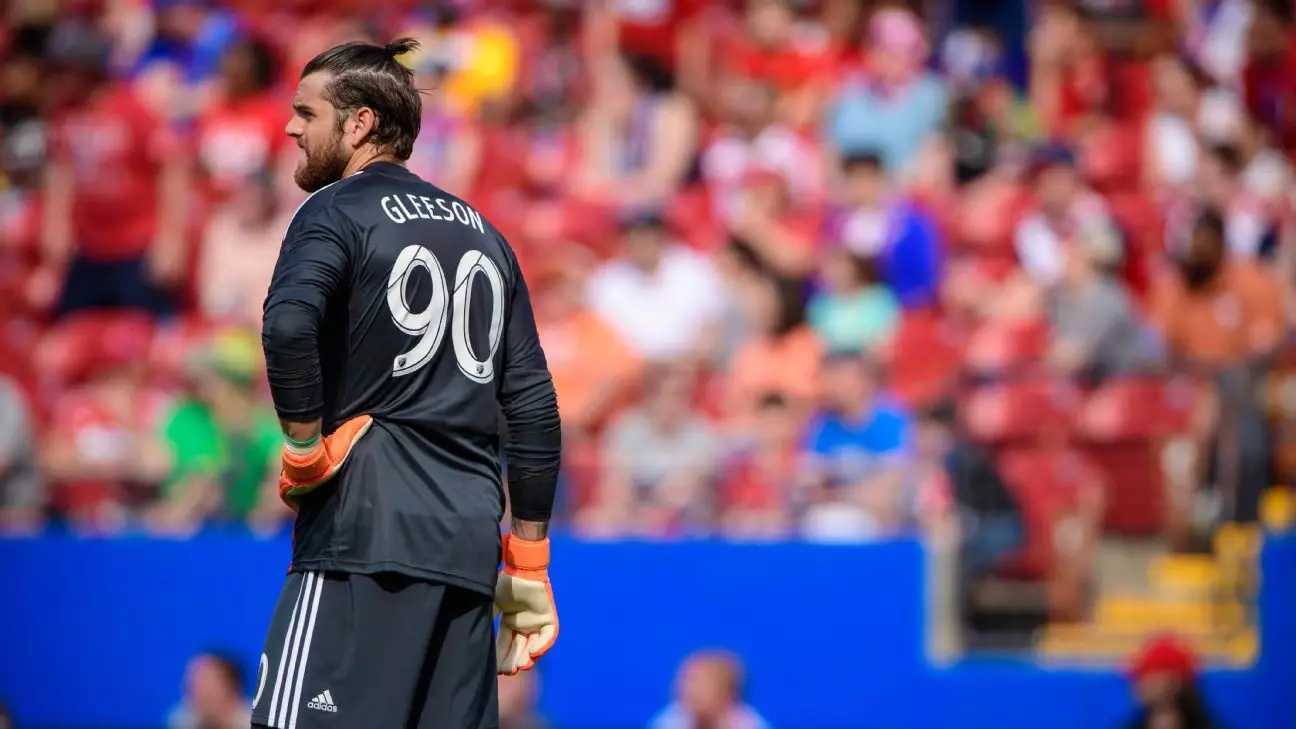The recent jury verdict favoring former Portland Timbers goalkeeper Jake Gleeson has sent shockwaves throughout the sports community. Awarding Gleeson over $20 million in damages following a lengthy medical malpractice lawsuit against Dr. Richard H. Edelson, the case not only highlights the individual struggles of a professional athlete but also raises critical questions about medical practices and patient safety in competitive sports. Gleeson’s story is not just about a mismanaged surgery; it’s a cautionary tale that underscores the need for accountability in the medical profession, especially involving athletes who trust their well-being to medical professionals.
Gleeson’s trials began in 2018 when he underwent surgery for stress fractures in both legs. Unfortunately, what was meant to be a pivotal moment in his recovery morphed into a hellish ordeal characterized by a sequence of devastating complications. Allegations emerged that the plates used in his surgery weren’t properly sterilized, leading to infections that necessitated an unfathomable fourteen surgeries. This appalling series of events abruptly terminated Gleeson’s professional career and has left him grappling with chronic pain.
The Emotional Toll: More than Just Physical Pain
In the immediate aftermath of the verdict, Gleeson candidly shared the grueling reality of his situation, emphasizing the emotional toll intertwined with the physical suffering he has endured. “It’s been a very hard six-and-a-half years,” he reflected in a post-verdict Zoom call. The emotional resonance of his testimony allows us to grasp the profound impact of his ordeal beyond the surgical and medical missteps. His declaration, “I left the training field one day, not knowing that that would be the last time I would ever be a professional soccer player,” serves as a poignant reminder of how swiftly life can pivot, especially in high-stakes environments such as professional athletics.
What’s particularly striking is how Gleeson is leveraging his experience to advocate for patient safety. He insists that regardless of one’s profession, from an MLS player to a desk worker, there is an inherent expectation for doctors to adhere to safety protocols when patients consent to procedures. This principle should resonate deeply across medical fields and raise awareness of the grave implications medical professionals face when standards slip.
Examining Accountability: A Rigid Framework of Trust
Gleeson’s case shines a spotlight on the layers of accountability within the healthcare system. While the defense contended that the sterilization method employed—Immediate-Use Steam Sterilization (IUSS)—was deemed adequate, they were ultimately countered by overwhelming evidence presented during the trial. The jury determined that Edelson’s application of regulations and guidelines failed to meet acceptable standards. With a unanimous jury ruling on key questions of negligence, including the protocols adhered to during Gleeson’s procedure, it becomes clear that the legal system can—and does—serve as a mechanism for accountability in healthcare.
Moreover, the jury’s decision is more than a personal victory for Gleeson; it is a significant precedent. It encourages a stricter scrutiny of medical practices, especially in high-pressure environments where athletes represent both their talents and their teams. The legal judgments surrounding this case could force changes in the protocols governing how surgical procedures are performed for athletes, emphasizing the need to prioritize safety and informed consent.
Community Support: The Role of Teammates and Advocacy
Gleeson’s struggle has garnered tremendous support from former teammates and fellow athletes, who testify to the profound effects his situation has on the community. This displays the importance of solidarity in sports, where personal challenges often intersect with collective identities. Testimonies from players such as Nat Borchers, Jack Jewsbury, and Darlington Nagbe solidify the notion that Gleeson’s battle is a shared experience; when one player suffers, it resonates throughout the entire community.
This sense of team spirit morphs into a broader advocacy network. By helping to raise awareness about medical practices in sports, Gleeson not only champions his cause but also strengthens the importance of accountability across the board. His decision to speak out post-verdict further cements his role as a key figure in promoting safe medical practices, especially for vulnerable individuals relying on their athleticism for livelihood.
The windfall of this case, if upheld, could potentially empower other athletes to come forth with similar grievances against poor medical standards. Gleeson’s determination to shine a light on these issues speaks both to his character and the inherent responsibilities embedded within sports, essentially reframing the narrative of athlete-career relationship dynamics. In a world where success often overshadows the darker realities of physical health, Jake Gleeson’s journey becomes a beacon of resilience and advocacy—one that could instigate much-needed change.


Leave a Reply